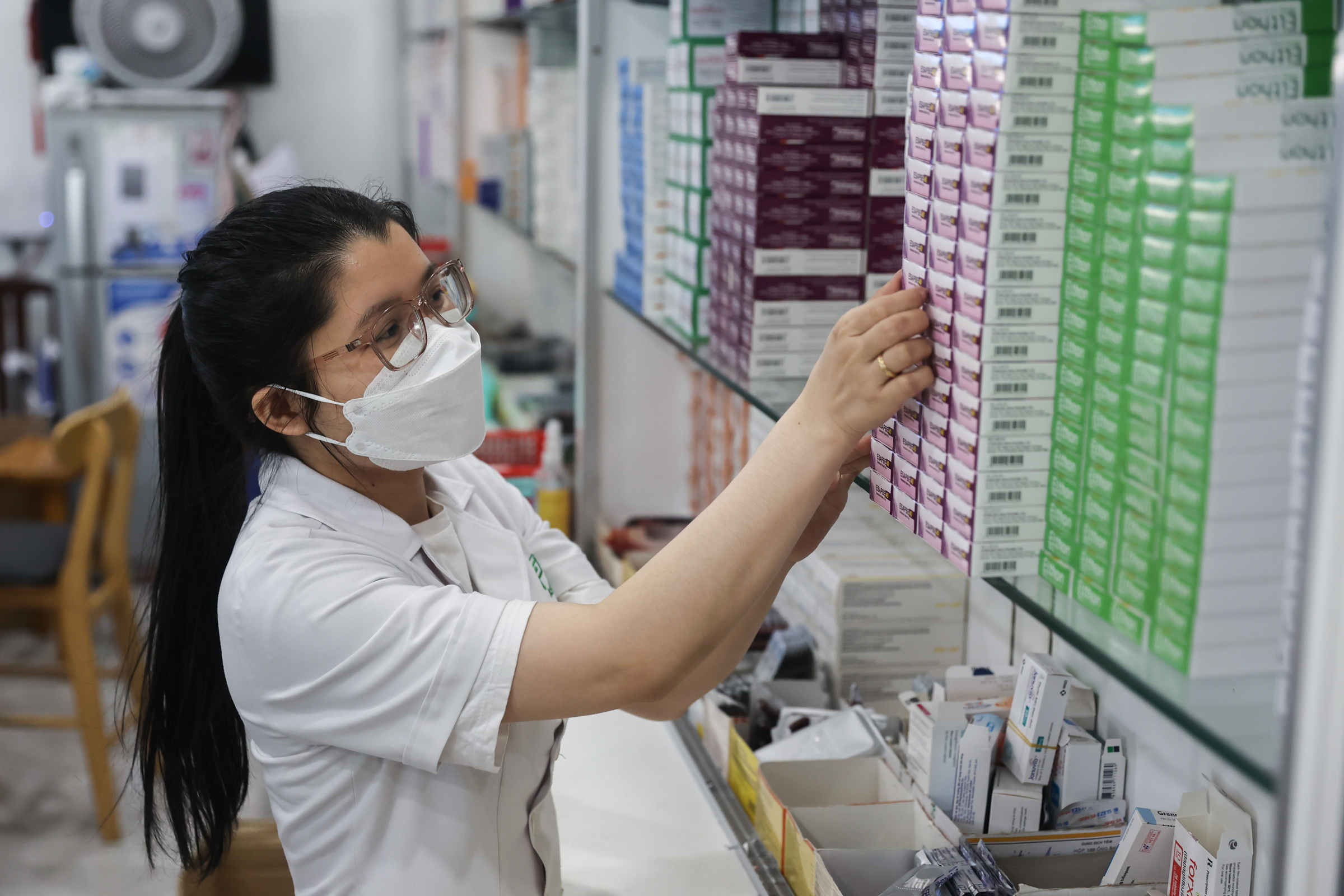During the National Day holiday on 2/9, our bodies often adjust to changes in environment, weather, and dietary habits, especially when traveling long distances or visiting family.
Pharmacist Nguyen Thien Dung from the Pharmacy Department of the University of Medicine and Pharmacy Hospital, TP HCM, recommends preparing the following medications:
For diarrhea: Medications containing diosmectite (Smecta), loperamide (Imodium), attapulgite (Actapulgite), or berberine (Berberine, Berberal). These drugs combat diarrhea through various mechanisms, including binding and absorbing harmful agents, creating a protective barrier for the digestive lining, acting as antibacterials, or reducing intestinal motility.
Remember to replenish fluids and electrolytes if experiencing frequent bowel movements. Seek immediate medical attention if symptoms of infection arise, such as dizziness, fever, bloody or mucus-filled stools.
For constipation: To alleviate constipation, increase your water intake, and consume plenty of fruits and vegetables to stimulate bowel movements and add bulk to stool.
If symptoms significantly impact your quality of life, consider medications like sorbitol or lactulose (Duphalac, Laevolac). These preparations, typically available as powders or syrups, should be mixed with water and taken on an empty stomach.
For upset stomach: Common over-the-counter antacids include Kremil-S, Siloxogene, Gastropulgite, Konimag, Trimafort, and Gaviscon. These neutralize excess stomach acid, alleviating symptoms of stomach and duodenal ulcers, heartburn, acid reflux, and gastroesophageal reflux disease (GERD).
Take these medications after meals. Syrups can be consumed directly or diluted with water. Chew tablets thoroughly before swallowing.
For digestive support: Changes in diet and alcohol consumption can lead to bloating and indigestion. Keep digestive enzymes in your medicine cabinet.
 |
Medical staff at the pharmacy of 175 Military Hospital, Go Vap District, dispensing medication to patients, 3/2024. *Photo: Quynh Tran* |
For fever: Paracetamol is a common pain reliever and fever reducer. Take it when symptoms appear, 325-650 mg every 4 hours, with a maximum daily dose of 4 g for individuals with normal liver function and 3 g for those with impaired liver function.
For allergies: H1 antihistamines like cetirizine (Zyrtec), levocetirizine (Xyzal), loratadine (Lorastad, Clarityne), desloratadine (Aerius), and fexofenadine (Telfast BD, Telfast HD) treat symptoms like runny nose, hives, and food or weather allergies.
These medications can cause drowsiness, so exercise caution when driving or operating machinery.
Combination medications: Products like Tiffy and Decolgen combine multiple active ingredients to treat common cold and flu symptoms, including nasal inflammation, congestion, runny nose, sneezing, headaches, and fever.
Note that these often contain paracetamol, so monitor dosage when combining them with other paracetamol-containing medications to avoid overdose.
For chronic conditions: Individuals with chronic illnesses like diabetes or hypertension should monitor their blood sugar and blood pressure, adhering to their regular medication schedules.
Maintain an adequate supply of medication throughout the holiday in case medical facilities or pharmacies experience closures.
First-aid supplies: Every household should have a first-aid kit containing band-aids, sterile gauze, and scissors. Wound cleansing and antiseptic solutions like povidone-iodine (Povidine, Betadine), hydrogen peroxide, and 70% alcohol are readily available.
My Y












